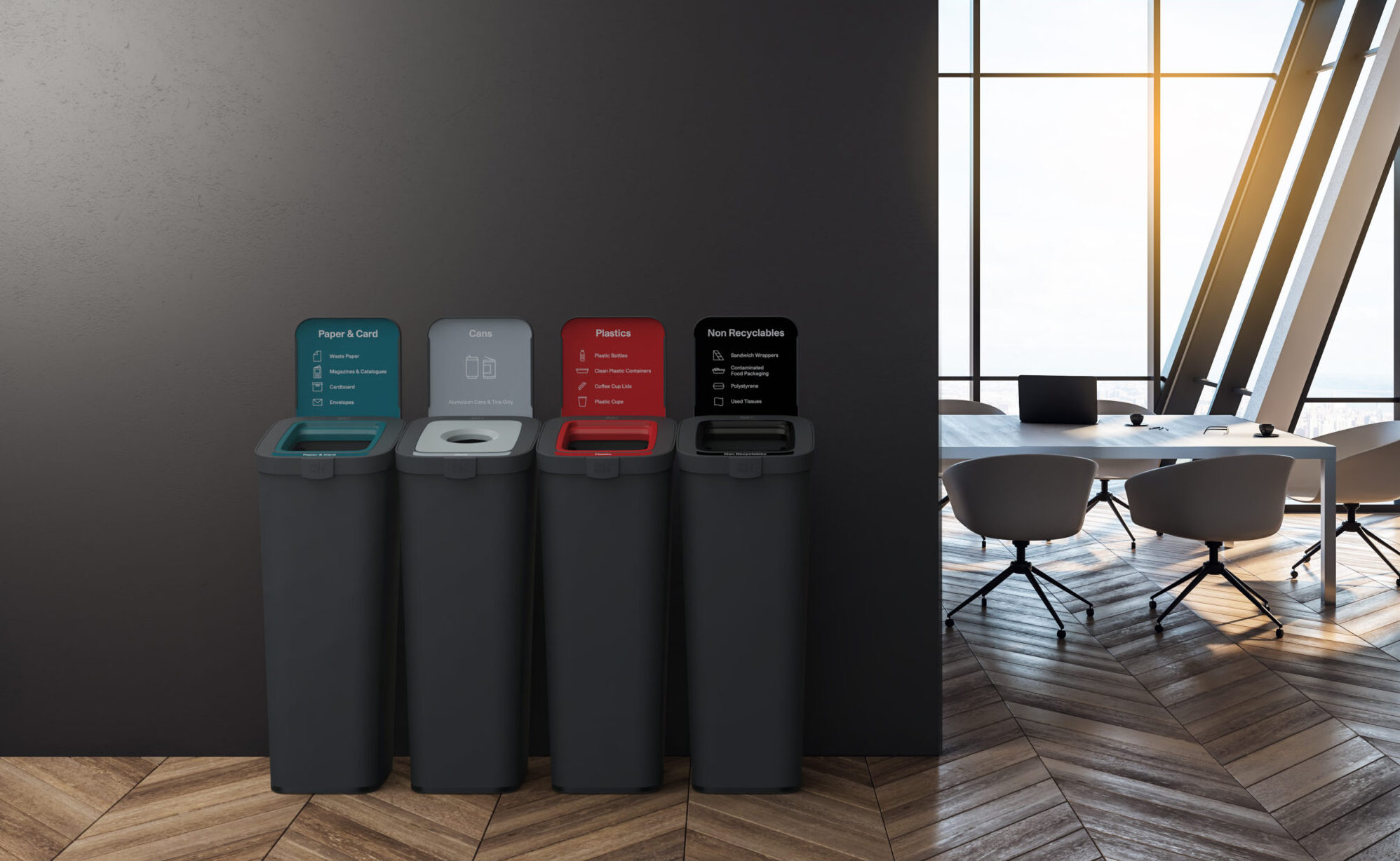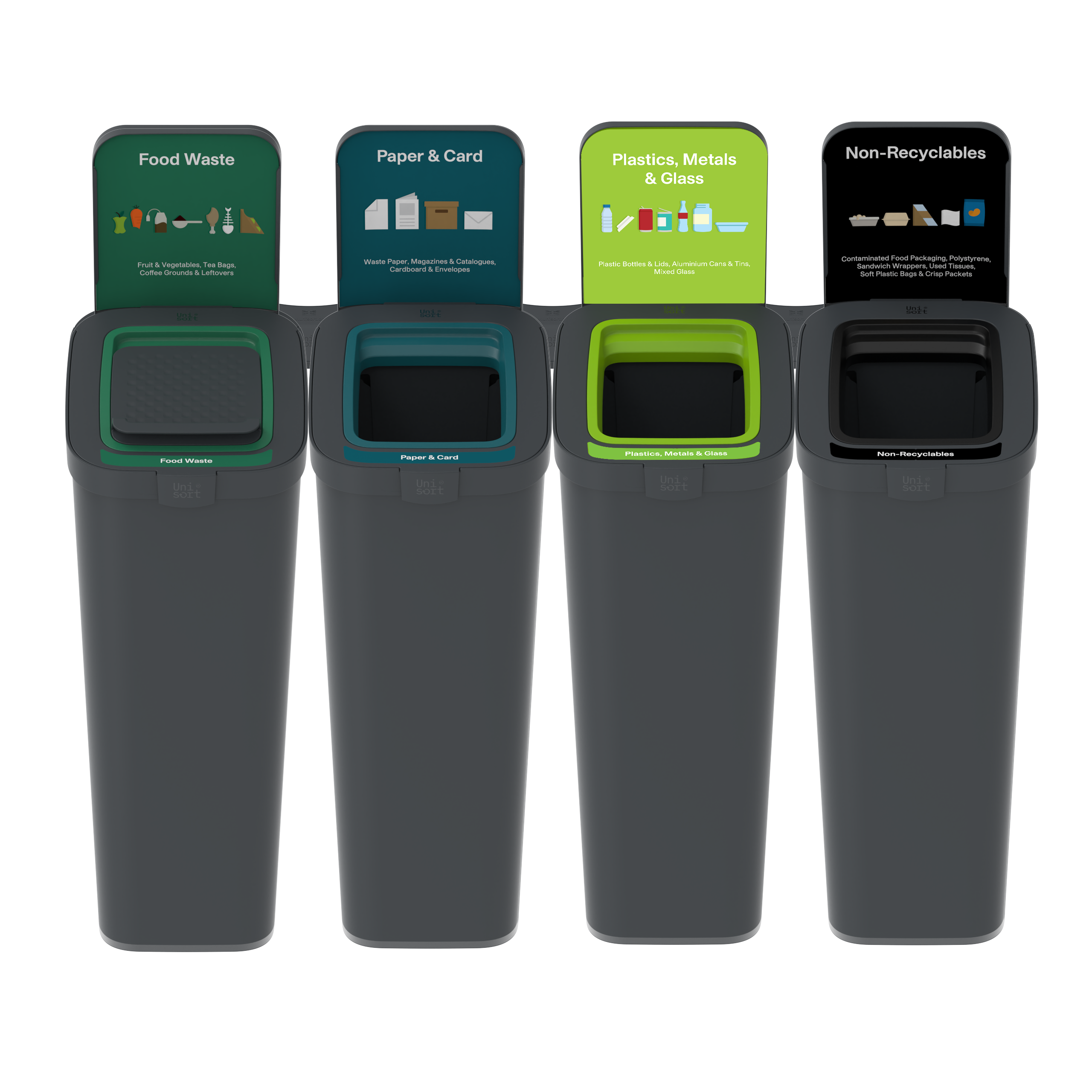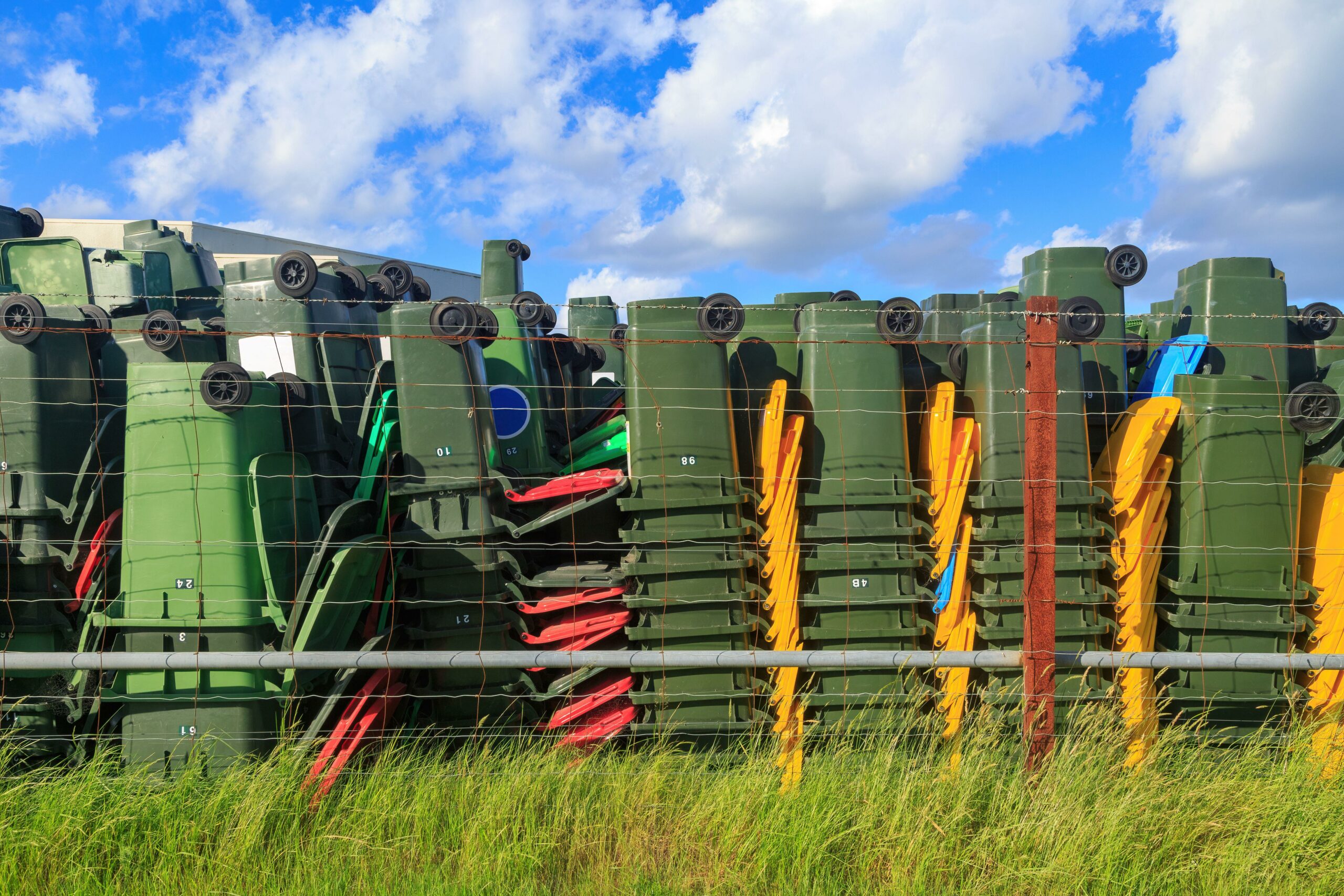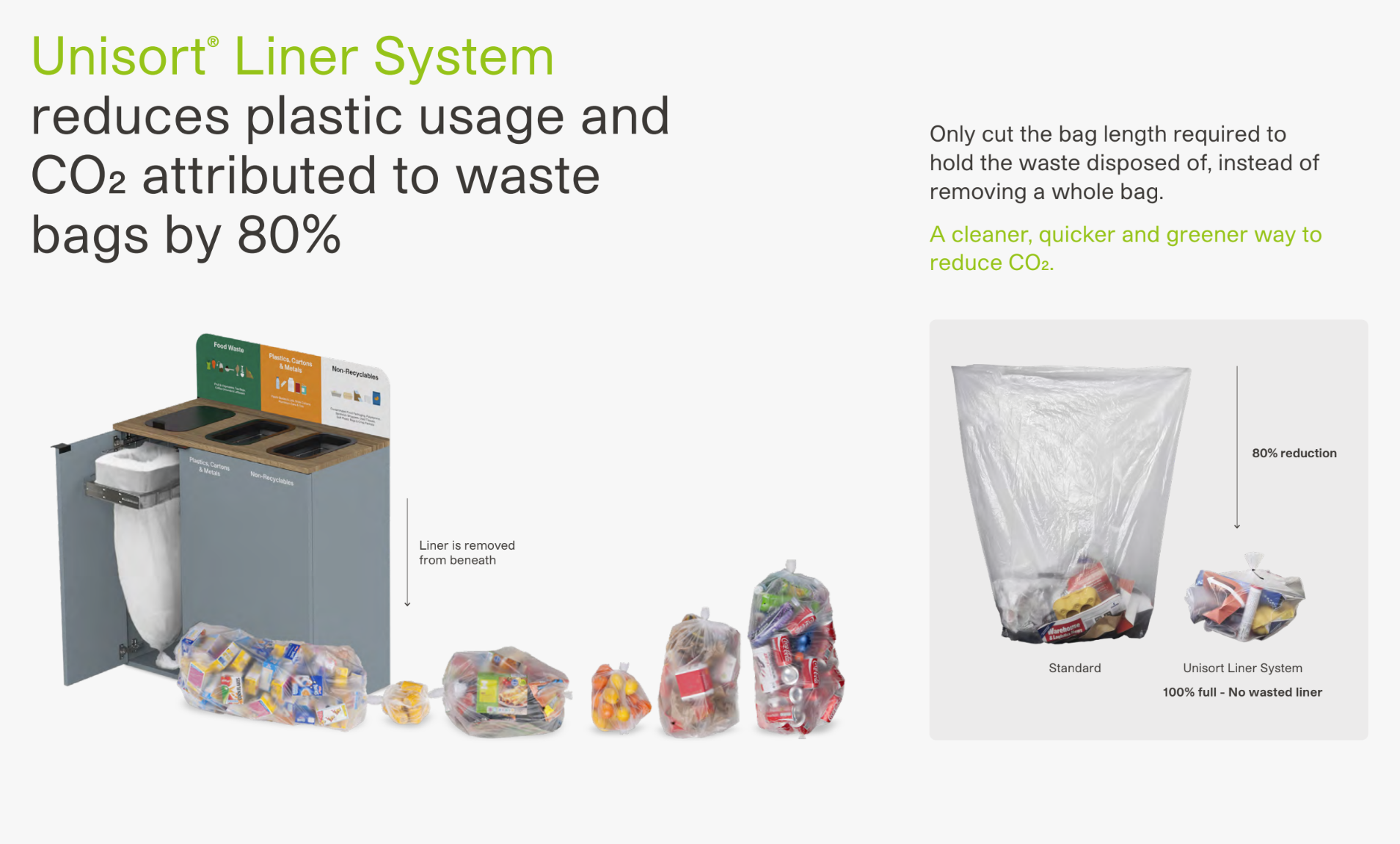Plastic recycling in the UK faces even greater challenges than you might think.
Plastics can be seen as ubiquitous, polluting oceans, littering streets, and contributing to microplastic contamination. Improper or negligent management of plastic waste poses serious risks to ecosystems and increases carbon footprint.
In 2025, plastic recycling for UK businesses is much more than ticking boxes for corporate social responsibility initiatives. It is now central to compliance, reputation management, and contributing to a sustainable and healthier future.
The Cost of Improper Plastic Recycling
The UK generates millions of tonnes of plastic waste annually, but only a fraction is effectively and correctly recycled.
Government data from 2022/23 reveals that just 51.4% of plastic packaging waste is recycled, with the rest ending up in landfills, incinerators, or being exported to countries that may lack adequate recycling infrastructure…
When businesses fail to recycle properly, plastic waste often ends up in these channels, where it contributes to harmful outcomes:
❌ Landfills: Plastics can take hundreds of years to break down, leaching toxic chemicals into the soil and water.
❌ Incineration: While burning plastic can generate energy, it also releases harmful greenhouse gases and toxic pollutants. The UK Gov has announced that CO2 emissions from incineration will be included in the UK Emissions Trading Scheme from 2028 – essentially an ‘incineration tax’ which means that general waste headed for incineration will cost more to dispose of.
❌ Exportation: Exporting plastic waste often leads to environmental dumping in countries with insufficient regulations, exacerbating global plastic pollution.
The consequences don’t stop there..
Mismanaged plastic contributes to the growing issue of microplastic pollution. Tiny plastic particles that infiltrate waterways, soil, and even the air we breathe. Studies have found microplastics in everything from seafood to bottled water, highlighting the urgency for better waste management solutions and greater levels of recycling.
Scientists have estimated the average person might eat 5 grams of microplastics in a week. About the weight of a credit card!
UK Businesses and the Changing Recycling Landscape
In response to the escalating plastic crisis, the UK government is introducing tighter regulations to improve recycling rates and reduce contamination. One of the most significant upcoming changes is the Simpler Recycling Regulation, which will take effect by 31 March 2025. This regulation requires businesses and relevant non-domestic premises in England to arrange for the separate collection of core recyclable waste streams, including:
-
- residual (non-recyclable) waste
- food waste (mixed with garden waste if appropriate)
- paper and card
- all other dry recyclable materials (plastic, metal and glass)
This marks an important shift in waste management responsibilities, especially for businesses that have traditionally relied on general waste disposal. Non-compliance will result in penalties and also potentially damage a company’s reputation.
Discover our range of recycling stations designed for easy waste segregation and compliance with the upcoming regulations, here.
The Contamination Problem
One of the greatest barriers to effective plastic recycling in the UK is contamination. When non-recyclable items, food residue, or liquids and other non recyclable materials are mixed with recyclable plastics, entire batches can be rendered unsuitable for recycling. This often leads to these materials being sent to landfill or incineration instead.
For example, councils across the UK report that a significant percentage of recyclable waste is rejected due to contamination. This is not just a household issue; businesses also play a major role in ensuring that waste streams remain clean and properly sorted. Whilst a lot of recyclable waste is captured at MRF’s (Material Recovery Facilities) a significant amount still ends up in general waste and incineration which increase carbon footprint.
To help UK businesses reduce contamination rates, we have developed specialised recycling stations that optimise space, simplify the recycling process, and significantly reduce contamination.
Explore 4 compartment recycling bins.
The Role of UK Councils in Plastic Recycling
Local councils are responsible for managing household waste recycling, but their services often vary widely. While some councils offer comprehensive plastic recycling schemes, others have limited capacity, leading to confusion and inconsistency in recycling practices. Businesses, on the other hand, are typically required to arrange their own waste collection services, often working with private waste management companies.
Understanding the specific requirements of your local council and waste contractors is critical to improving recycling outcomes. Businesses must also ensure that employees are properly trained and informed about what can and cannot be recycled to avoid contamination.
Start today with our Workplace Recycling Engagement Training Sessions to eliminate recycling confusion and ensure your team is fully equipped to recycle correctly. Ensuring everyone is on the same page is vital for the successful implementation of a new recycling strategy.
Plastic Waste Hierarchy: A Simple Guide for Businesses
Level |
Action |
Benefits |
| Prevent | Avoid using single-use plastics. | Reduces waste at the source, conserves resources, and lowers costs. |
| Reduce | Minimise plastic packaging. | Decreases reliance on virgin plastics and reduces carbon footprint. |
| Reuse | Promote refillable and reusable items. | Extends product life cycle and cuts down waste generation. |
| Recycle | Ensure plastics are sorted and recycled correctly. | Conserves raw materials, reduces landfill waste, and supports the circular economy. |
| Dispose | Safely dispose of non-recyclable plastics. | Prevents environmental contamination and supports energy recovery through incineration. |
Addressing Plastic Bottle Waste
Plastic bottles, made primarily from PET or HDPE, represent a significant portion of recyclable plastic waste. These materials can be recycled repeatedly, reducing the need for virgin plastic production and conserving natural resources.
However, despite the fact that 61% of plastic bottles in the UK are recycled, billions still end up in landfills or incineration each year.
The Deposit Return Scheme (DRS), launching in 2025, aims to address this issue by incentivising the return of plastic bottles through small deposits refundable upon recycling. The programme’s target is to recover 85% of recyclable beverage containers, supporting a circular economy and reducing waste. The challenge with this scheme is that it really requires all regions in the UK and devolved governments to work together and agree an aligned strategy.
Read more about Reducing Commercial Plastic Bottle Waste Through Efficient Recycling
View our Plastic Bottle Recycling Stations
Unisort Liners: A Smarter & Greener Way to Collect & Handle Waste
Unisort’s Liners provide a revolutionary solution to some of the inefficiencies of traditional waste bag options. Designed to eliminate wasteful overhang and partially filled bags, these liners offer up to 80% savings on plastic and the associated CO2 emissions.
Unlike standard plastic bags, Unisort Liners utilise only the plastic needed for each bin empty and the specific amount of waste being removed, reducing unnecessary material use while maintaining strength and durability.
By adopting these liners, businesses can make a great contribution to sustainability while improving operational efficiency.
Make it with Unisort’s Support
At Unisort, we’re dedicated to helping UK businesses streamline their plastic recycling efforts. Our innovative sorting and recycling solutions are designed to:
-
- Reduce Contamination: By providing clear guidance and efficient waste sorting systems, we help businesses keep recyclable plastics clean and separate.
- Ensure Compliance: With upcoming regulations like the Simpler Recycling Regulation, our solutions make it easier for businesses to meet legal requirements and avoid penalties.
- Promote Sustainability: By recycling more effectively, businesses can reduce their environmental impact, support the circular economy, and enhance their sustainability credentials.
Are you a UK business? Here are some simple steps to get started:
-
- Audit Your Waste Streams: Understand the types and volumes of plastic waste your business generates and identify areas for improvement. Ask for help.
- Improve your Recycling Infrastructure: Replace outdated bins that no longer meet your needs with new, high-performance recycling stations that can boost recycling rates by up to 80%. Take advantage of our Used Bin Takeback & Recycling Service, which allows you to responsibly dispose of your old bins while upgrading your recycling infrastructure. We’ll take back and recycle the plastic and metals from your old waste bins, ensuring they’re disposed of in an environmentally responsible manner.
- Train Employees: Educate staff on proper recycling practices to minimise contamination. Arrange your first session.
- Work with Trusted Partners: Partner with reliable waste management companies and recycling solution providers like Unisort to ensure compliance and efficiency.
- Limit Single-Use Plastics: Encourage the use of refillable bottles and implement water stations to reduce reliance on single-use plastics.
- Conduct Regular Audits: Periodically assess your waste management systems to identify gaps and optimise recycling practices.
- Stay Informed: Keep up to date with evolving recycling laws and local council requirements to stay ahead of the curve.
Addressing the plastic crisis requires collective action from businesses, councils, and individuals.
By adopting better recycling practices, reducing contamination, and complying with new regulations, UK businesses can be at the upfront in creating a cleaner, greener future.
Unisort is here to support you every step of the way. Let’s turn plastic waste into an opportunity for innovation and sustainability. Contact us today to learn more about our solutions for UK businesses.




